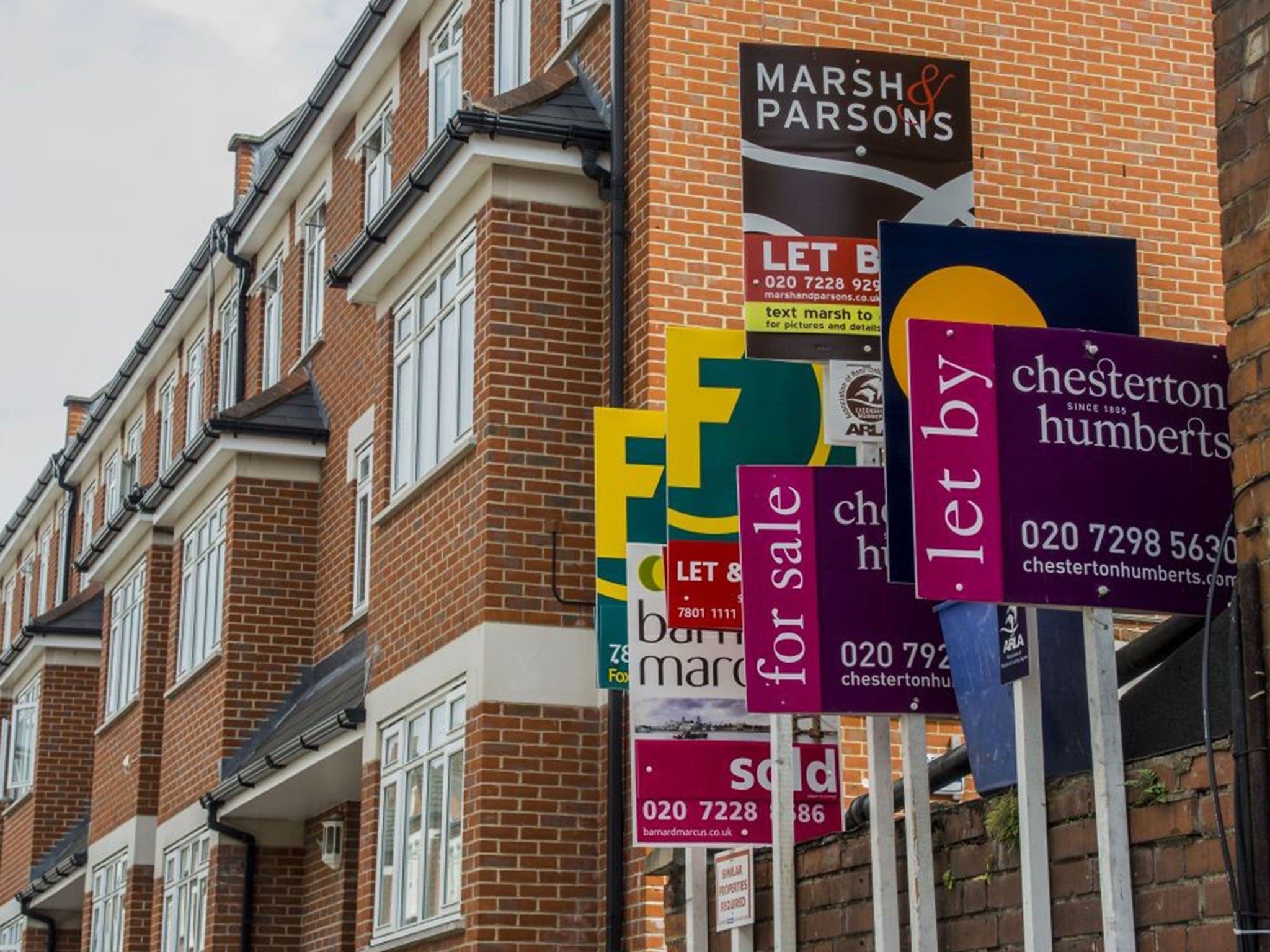Your support helps us to tell the story
From reproductive rights to climate change to Big Tech, The Independent is on the ground when the story is developing. Whether it's investigating the financials of Elon Musk's pro-Trump PAC or producing our latest documentary, 'The A Word', which shines a light on the American women fighting for reproductive rights, we know how important it is to parse out the facts from the messaging.
At such a critical moment in US history, we need reporters on the ground. Your donation allows us to keep sending journalists to speak to both sides of the story.
The Independent is trusted by Americans across the entire political spectrum. And unlike many other quality news outlets, we choose not to lock Americans out of our reporting and analysis with paywalls. We believe quality journalism should be available to everyone, paid for by those who can afford it.
Your support makes all the difference.Half of landlords intend to increase rents in response to measures in the Chancellor’s budget, according to a new industry survey.
A total of 56 per cent of landlords polled said they were likely to make tenants pay more to cover their costs after George Osborne scaled back tax breaks for renting out properties.
Mr Osborne’s budget could however stem the number of new build houses being bought up by landlords and make room for people to buy their own home.
Fifty seven per cent of landlords polled said they would not buy up more houses as incentives were reduced, and 23 per cent said they would consider selling off their properties – potentially increasing the supply of homes on the market.
“These statistics are a stark reminder that if landlords aren’t incentivised to be landlords then they will just stop buying new builds.” said George Spencer, CEO of the website Rentify, which carried out the survey.
He said the tax break cut was unwelcome for landlords and that it could "irreparably damage" their business.
Another survey conducted late last year found that landlords had planned to put rents up by 3 per cent this year. They rose 8.2 per cent in 2014, according to the English Housing Survey.
In a well functioning market supply and demand should restrict landlords' abilities to increase rents to compensate for higher costs, however.
The rent rise revelation comes amid a discussion amongst candidates for the Labour leadership about how best to deal with soaring rents.
Andy Burnham on Wednesday told a hustings event that he would support rent controls and allow councils to borrow to build more homes.
“I would favour rent controls, I would because I think we have a dysfunctional housing market. I think the question is right that this is a huge cost that is really making a number of people, particularly in London struggle,” he argued.
Jeremy Corbyn has previously said the lack of such rules was leading to the “social cleansing” of parts of inner London.
“In the absence of rent control all that’s happening in central London is that families who access benefits to pay their rent cannot get enough money to pay their rent,” he argued in his justification for voting against Conservative welfare cuts.
Labour's current shadow chancellor Chris Leslie, a landlord himself, however argued that Labour should resist "the temptation to control and run what’s going on in a particular market" with regard to housing.
Yvette Cooper and Liz Kendall, two other candidates for the leadership of the party, have not publicised their positions on reducing housing costs or rent controls.
The Chancellor’s budget cut mortgage tax breaks from 45 per cent to 20 per cent for buy to let landlords by 2020, saving millions.

Join our commenting forum
Join thought-provoking conversations, follow other Independent readers and see their replies
Comments